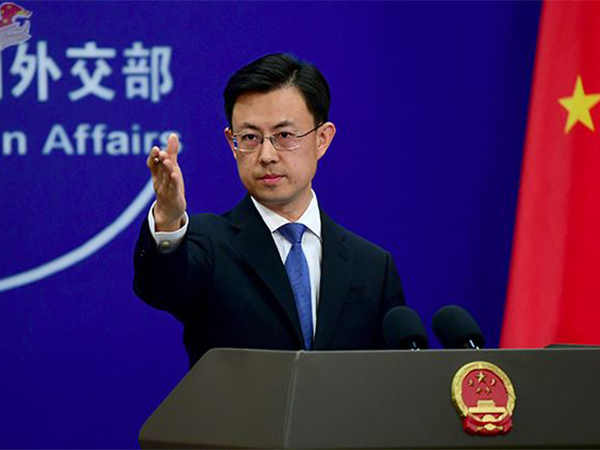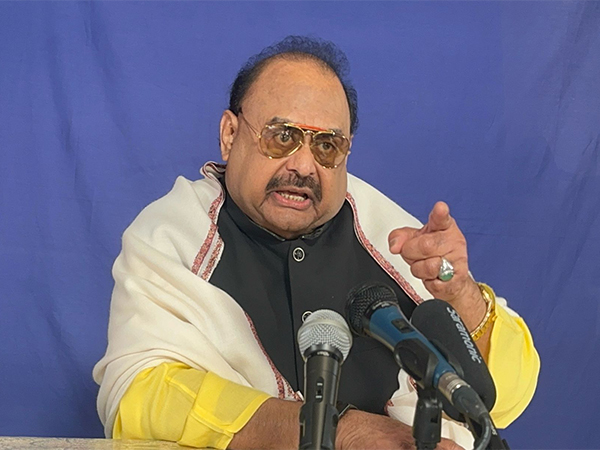Bangladesh Independence Day through the eyes of veteran journalist Prem Prakash
Mar 26, 2021

New Delhi [India], March 26 : Prime Minister Narendra Modi began his historic visit to Bangladesh on its National Day on Friday to commemorate the birth centenary of Sheikh Mujibur Rahman, 50 years of diplomatic ties and 50 years of Bangladesh's war of liberation, reflecting deep cultural, linguistic and people-to-people ties between the two countries.
A book by veteran journalist Prem Prakash gives a gripping account, interesting insights and a quick perspective into the struggle of Bangabandhu Sheikh Mujibur Rahman in the face of then Pakistani rulers denying him his electoral mandate, the circumstances that led to the liberation of Bangladesh and the 1971 war that left India with 93,000 prisoners of war.
The author, who is ANI Chairman, covered the momentous events of the time by going into then East Pakistan at personal risk and his reports led the world to realise the gravity of excesses and cruelty committed by the Pakistan Army.
He covered Mujibur Rahman's arrival in Dhaka after the 1971 war, "a big world news at the time" and describes that the Bangabandhu appeared from the plane to "wild cheers of the crowd at the airport" and to "huge, enthusiastic welcome."
The book 'Reporting India: My Seventy-Year Journey' describes how March 26 came to celebrate as Independence Day of Bangladesh and how leaders of the Awami League announced a "provisional government" of Bangladesh before the liberation war and "declared their determination to continue the struggle till Pakistan withdrew from their territory".
The chapter 'Bangladesh on the Horizon' notes that the Bangladeshi flag was raised at the meeting of Awami League leaders. The meeting ended with the chanting of Tagore's 'Amar Sonar Bangla' which was later adopted as the national anthem of Bangladesh.
"It was historical footage that I had shot but when one is shooting one does not realise the magnitude of such things. The mind and the eye are focused on the image, the sight and the sound," the author notes.
The recently-released book notes that Indian Army Chief General SHFJ Manekshaw had asked the Pakistan army to surrender or face annihilation in the 1971 war and the pre-emptive attacks on Indian Air Force bases on December 3 night were immediately repulsed and it was clear by December 14 that Pakistan was in no position to continue fighting.
It notes that "Americans under President Richard Nixon and Secretary of State Henry Kissinger were hostile to India" and the United States threatened to intervene on Pakistan's behalf and moved the Seventh Fleet towards the Bay of Bengal "bringing with them the threat of nuclear attack".
It says that while Pakistan's pre-emptive attacks were repulsed, the Indian Army simultaneously moved into then East Pakistan, outflanking the Pakistan Army there.
The book says the then Prime Minister Indira Gandhi undertook a tour of world capitals in November 1971 to apprise the world of what Pakistan was doing to its own people.
The author says that East Pakistan had always been a volatile part of Pakistan - ethnically, culturally - and in fact was totally different from West Pakistan.
The book says that elections for Pakistan's National Assembly, held in December 1970, saw Sheikh Mujibur Rahman's Awami League, which was largely based in East Pakistan, emerge as the majority party. "This came as a shock to West Pakistan and its military rulers. The Awami League also won 288 out of 300 seats in East Bengal Legislative Assembly. Now, the Awami League, in the true democratic sense, was the real representative of the people of Pakistan."
It says the then Pakistan President General Yahya Khan, who was joined by Zulfikar Ali Bhutto, refused to allow Mujibur Rahman to become prime minister. Bhutto even refused to accept any solution suggested by Mujibur Rahman to solve the impasse.
Talks between the two sides chugged along all the way to March 1971 with Mujibur Rahman still being denied his right to be prime minister.
"That was when Zulfikar Ali Bhutto, backed by President Yahya Khan, proposed an unheard-of solution: having two prime ministers of Pakistan, namely himself and Mujibur Rehman. Bhutto was not in favour of autonomy to East Pakistan, wishing instead that it continue as a colony of West Pakistan. The two leaders, along with Yahya Khan, met in Dhaka in March 1971. But the talks failed. Mujibur Rahman issued a call for a nationwide strike across both East and West Pakistan to enforce the result of the December elections. Yahya Khan ordered General Tikka Khan to fly to Dhaka and take charge of East Pakistan as governor. More troops were flown into East Pakistan. Pakistan's all-powerful army had clearly negated the elections of 1970," says the book
It says that Mujibur Rahman addressed a huge rally in Dhaka on March 7, 1971, asking for the lifting of martial law, for the army to be confined to barracks and transfer of power to the elected leader of assembly before March 25.
"At the same time, Bengali judges refused to swear in Tikka Khan as governor, although this certainly did not deter the military rulers either in Rawalpindi or in Dhaka. Allowing Mujibur Rahman's deadline of March 25 to pass, Tikka Khan launched his genocidal crackdown on East Pakistan. Mujibur Rahman was arrested during the night of March 25 and immediately flown to West Pakistan, where he was put on trial and sentenced to death for sedition."
The book says that Awami League had announced on March 25 that "Bangladesh was now a sovereign and independent country" and confirmed it in Chittagong on March 26 - now celebrated as Independence Day of Bangladesh.
The book refers to India supporting Mukti Bahini in its fight.
"As the Army advanced, I flew into Calcutta from where I travelled with General Jagjit Singh Aurora and General Jacob to cover the surrender ceremony, held at Race Course Road in Dhaka. Pakistan surrendered to Indian Army and Mukti Bahini. General Aurora signed for India and General Niazi, commander of Pakistani forces signed on behalf of Pakistan. It was a heady feeling for us journalists covering those last few days of the 'Fall of Dhaka'. I will never forget the face and expressions of common people who saw an end to their misery," he says.
The book says India moved the Pakistan Army into cantonments, where some 93,000 soldiers laid down their weapons - the biggest surrender since World War II.
"Again these were historic events I covered, but at that time uppermost in my mind was the thought that I had to quickly shoot and send pictures to London," says the author.
He says that Sheikh Mujibur Rehman was still in a Pakistani prison with a death sentence hanging over his head. "It is said that the Pakistanis had dug a grave near his prison cell. Mrs Gandhi acted firmly and ensured his release in January 1972. Mujibur Rahman flew to London and from there to Delhi on his way back to Dhaka."
The author also recounts the risks in coverage of the situation during the crackdown launched by Tikka Khan.
The book talks about Razakar force created by Tikka Khan to spread terror among the population in general and among Hindu villagers in particular. It says women were special targets of essentially Punjabi-dominated Pakistan Army.
The author recalls how he and his colleague landed in serious trouble at the House of a local member of National Assembly, the only Muslim League candidate to be elected from East Pakistan. "Once on Indian soil, we heaved a sigh of relief. That had been a close shave," he says.
The author recalls that the then Principal Information Officer of the government had asked him about Bangladeshi leaders and recalls that Badshah, press secretary to Mujibur Rahman, whom the Sheikh treated as his son, was instrumental in presenting the provisional government of Bangladesh to international media.
"We were all escorted by Badshah to the border and then crossed over to what was still East Pakistan. We reached a village where a huge stage had been raised. The leaders of Awami League appeared and a provisional government of Bangladesh was announced. They declared their determination to continue the struggle till Pakistan withdrew from their country."
"Our mission was to tell the world the truth - and we succeeded. The stories and pictures from East Pakistan greatly influenced world opinion in favour of Bangladesh's fight for freedom. The world came to know of the atrocities and genocide being committed by the Pakistan Army in East Pakistan," he adds.
Prem Prakash is a pioneer in Indian journalism and in his long career has covered some of the most important stories of post-Independence India including the 1962 war with China, 1965 and 1971 wars against Pakistan, the assassination of Indira Gandhi and Lal Bahadur Shastri's fateful Tashkent journey.

















